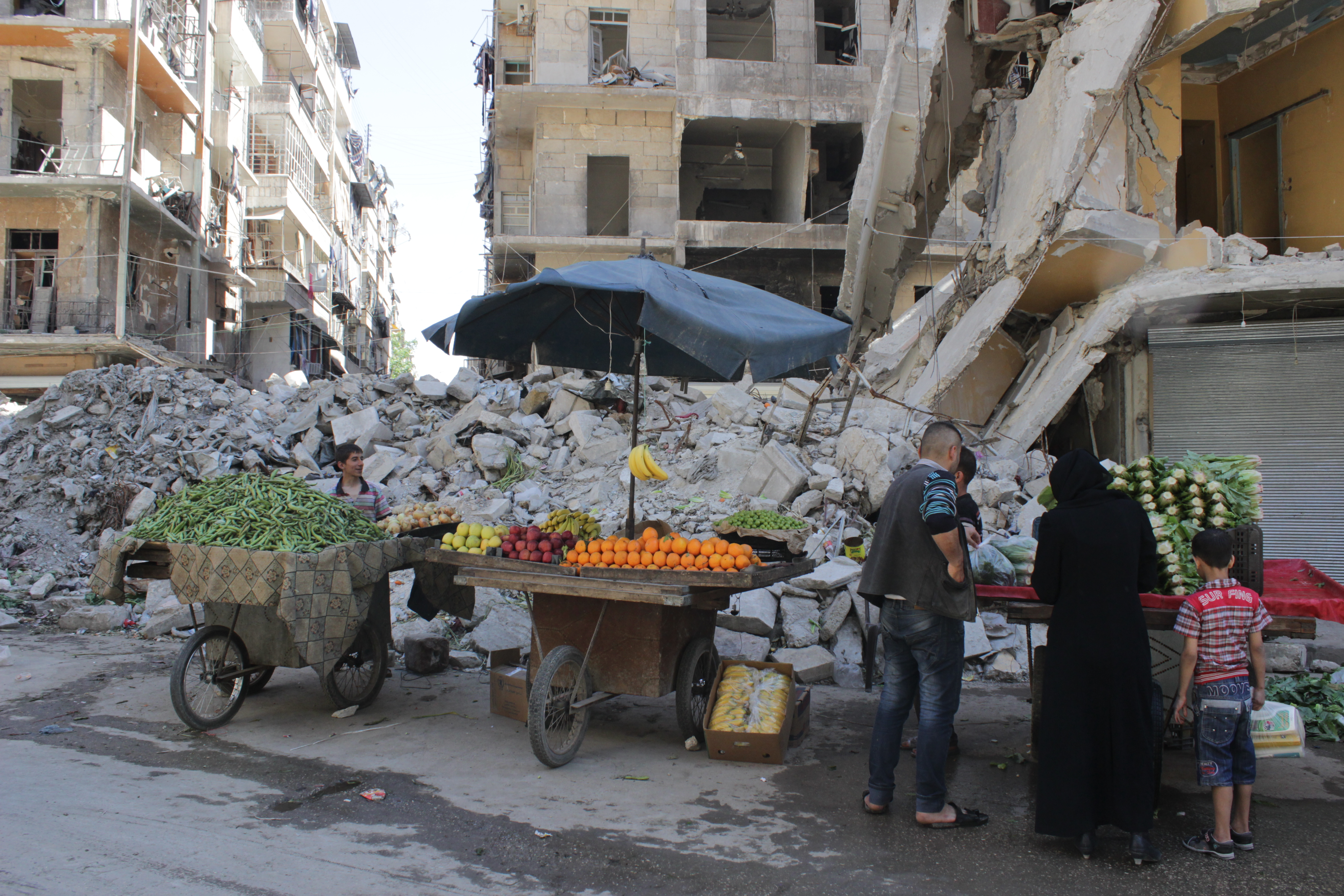Surviving on Animal Fodder

Towards the beginning of the anti-government demonstrations in Syria, I had started gaining weight, and my mother and friends urged me to visit a nutritionist and go on a diet, but all my efforts were in vain.
I decided to focus my energies on the revolution and dedicated myself to that cause. From time to time, though, I would remember to follow the strict diet my mother had recommended.
In 2013, the government began a siege of Eastern Ghouta. No foodstuffs were allowed to pass into Douma, my home town, which is part of Eastern Ghouta. It was hard to find flour to bake bread, so people began to substitute with barley flour, normally used as animal feed.
That was a harsh winter. We had no diesel, gas or other fuel, so people went back to firewood for heating and cooking.

Two months into the siege, my weight began to drop. At the time, I was the manager of an education centre, on 8,000 Syrian pounds a month.
My father was elderly and unable to work, so my younger sister started teaching so as to help with our expenses. She was no longer able to go to school due to the siege. She earned 7,000 pounds a month, but money was still tight.
I started contacting my friends who lived outside Douma and asking them for financial assistance. It was humiliating. I never thought I would find myself borrowing money or asking for help, but I was forced to do so.
My brother had been detained by the government, so his wife and two children moved in with us. His wife was carrying their second child when he was arrested, and she gave birth during those hard times.
I sold all my gold jewellery to help my family cover our daily outgoings, but the money didn’t stretch far enough. Food was scarce, and the only thing we could talk about was the unbelievable hike in prices. The price of sugar or rice had soared to 3,000 pounds a kilogram, and barley flour was 500 pounds a kilo, if it was available at all.
The international community was oblivious to our suffering at the hands of the Assad government. We tried to highlight the misery Eastern Ghouta was living on social media, but our efforts came to nothing.
One day in February, I fainted while I was at work, and I was taken to a medical centre in a wheelchair. The doctor told me I was suffering acute malnutrition, hypoglycemia and rapid weight loss. He gave me a forced smile and tried to comfort me by telling me that many of his patients were showing the same symptoms. He did not prescribe me any medicine – he knew better than that. He just advised me to try to eat well when possible.
When I left the clinic, I laughed till I cried, as the situation was so ironic. The friend who had accompanied me there smiled and said, “We should buy animal feed of a better quality than what we’re eating.”
We exchanged jokes about the lack of food. Our sarcasm and willpower gave us the strength to carry on through our ordeal.
When spring arrived, I received an invitation to a wedding. I went through the whole of my wardrobe looking for something to wear, but nothing fitted. My figure had changed dramatically due to the weight loss.
I went to my friend Safaa’s house to borrow an outfit, and for the first time in my life felt excited about weighing myself. My fear of being overweight had dissolved with the passing of winter. To my surprise, I weighed 60 kilograms. I had lost 25 kilos in just three months.
It wasn’t just me; most of Ghouta’s residents had lost weight too. When I visited the doctor for a check-up he told me that many of his diabetic patients were almost cured due to the restricted diets they now followed, and they no longer relied heavily on medication.
People began making up jokes about the situation and about the animal feed we depended on during that harsh winter. My favourite was, “If you want your wife to be fit, send her to Ghouta for a while.”
Despite the suffering that Ghouta’s residents faced under siege, I cannot help but smile every time I think of my weight loss. As the saying goes, “every cloud has a silver lining”.
Hiba al-Rahman is the pseudonym of a Damascus Bureau contributor living in Douma, Syria.
